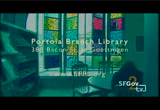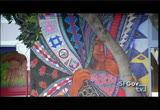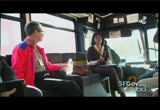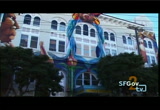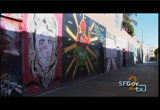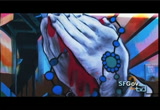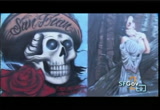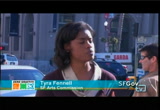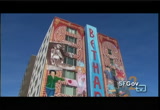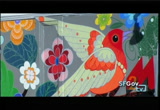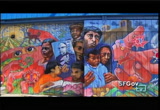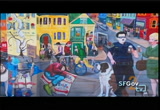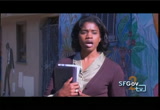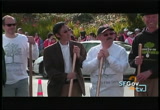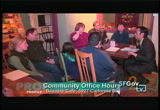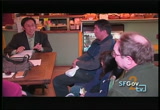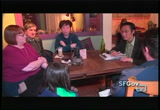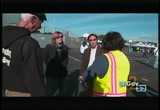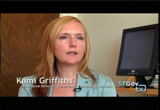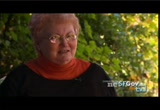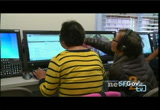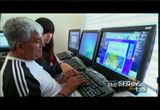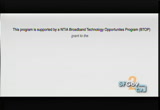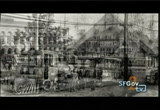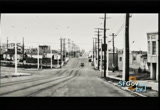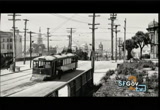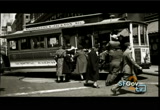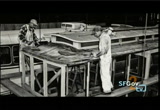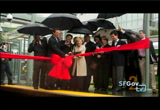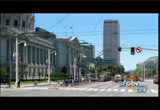tv [untitled] April 23, 2013 1:00pm-1:30pm PDT
1:12 pm
1:13 pm
francisco in 1984 when i was a college student. i remember growing up on clement street. i have always lived around in richmond area, just being around a unique area of the richmond, discovering san francisco in the 1980's. >> i am hoping we can not support small businesses like this because they are the unique character that makes neighborhoods like this so rich and lively to live in. >> i have also been active as a community organizer. i worked at the chinese progressive association. i also worked at the mental health center in the richmond district. i have always been passionate about civil rights, equality for everyone. i have a 10-year-old daughter, so having a girl has made me much more sensitive to gender equality issues. i guess i have always been vocal about my politics, but as a supervisor, i have to listen to
1:14 pm
other perspectives and making decisions. >> very soon there will be of much more seniors in that area. we are trying to focus on whether a stop sign or stoplight might help. >> tried to look at issues of senior nutrition programs, alzheimer's research, even housing policies that allowed our buildings to become more senior-friendly. also looking at how to support senior services, neighborhood- by-neighborhood programs that allow aging in place. people who are getting older helping each other stay in their homes and communities longer so that they can contribute as long as possible, as opposed to institutionalizing them. >> i support working families, livable communities, definite drawn support for the small business. even in my district, there are pockets of poverty and many people of work.
1:15 pm
so it is also about supporting those under employed people, small businesses in this difficult economy. >> there are a lot of vacant storefronts, so we are trying to find people to read these spaces. there is a bookstore over there. this way there are a lot of businesses that have been closing. >> i support the small businesses versus more chain stores that seem to be coming in to some of the vacant storefronts. i am trying to be sensitive to the local merchants because they make up the unique character and diversity of our neighborhoods. you go to lafayette. i was just there reading to a bunch of kids. i think i was reading to fifth graders. what grade are you in? >> as a member of the school board, i know strong schools in the richmond is key. also, from the birth to 5
1:16 pm
commission -- each commission has an organization to oversee pre-kindergarten kids. i want to ensure that the state level that we advocate strong support for young children and their families, good parenting support as well. >> often, we have to govern with our hearts. 80,000 people in the richmond district sometimes have different needs than people in the mission district or bayview hunters point. so often, elected officials and other hard working staff have to make tough decisions. they are political in nature, in many ways, even though people denied that, but at times, many of us are politicians, but we always try to govern with our hearts. >> i have always considered myself having progressive politics. i believe in a vision of people having their needs met. i believe in equity. when people have special needs,
1:17 pm
we should be considered of that. i also feel that working families in the lowest income population should have a safety net. we should have civil-rights and equality rights for people as well. if that is being a progressive, then i am proud of being a progressive. >> i want to learn more about it. >> social networking and e-mail. >> i want to know how to use it. ♪ ♪ ♪ >> divisional divide is a divide between those with access to use digital tools and those who don't.
1:18 pm
>> with young people, having computers and i just don't know. they're doing it fast. so, i want to know. >> not knowing how to navigate the internet or at a loss of what to do. >> we don't have a computer. >> we're a nonprofit that unites organizations and volunteers to transform lies through literacy. our big problem right now is the broadband opportunity program. a federally funded project through the department of aging. so, we're working in 26 locations. our volunteers are trained to be tutors and trainers, offering everything from basic classes all the way to genealogy and job search. >> to me computers, knowing how to use it. >> i think it's really important to everybody and possibly especially seniors to
1:19 pm
get enough of these skills to stay in touch. >> it's been fun. with seniors, to get them out of their homes. >> so they can connect with their family members. or their family members. >> [speaking in spanish]. >> so, what we focus on is transferring skills from volunteer to learner to help them get onto facebook, find housing in crisis, be able to connect with friends and family. >> i decided to teach what i learn and it made me want to
1:20 pm
give back. i discovered that seniors do a lot of review. >> i am a beginner, so, little by little i learn. i learn a lot now. >> if you get the basics, you can learn it. it's simple. it's easy. once you know it. and that's what i want to learn, how to make my life easier and more knowledgeable with the computer. >> so, what we need right now are more people who speak languages other than english or in addition to english who can give their time during the day and who care deeply ideally about helping to close the divide. >> it's a humbling experience. it's something simple to ask in our daily life, but to someone that doesn't know and to help somebody gain that experience in any way is awesome.
1:21 pm
>> [speaking in spanish]. >> no matter how tired or cranky or whatever i might feel, when i walk into this place i always walk out feeling great. >> if you feel comfortable using computers and you have patience, we want you on our team. >> would you show me how to type? >> [speaking in spanish]. >> will you help me learn more?
1:22 pm
>> on december 28, 1912. san francisco mayor, sonny jim rolph stared into the crowds of those who have gathered. a moment in history. the birth of a publicly own transit system. san francisco municipal railway. muni as it would become to be known. happy birthday, muni, here is to the next 100 years. the birth of muni had been a long-time coming. over the years the city was disjointed privately owned companies. horses and steam and electric-powered vehicles. creating a hodgepodge of transit options. none of them particularly satisfying to city residents.
1:23 pm
the city transit system like the city itself would have changes during the san francisco earthquake. the transition that will pursue from this aftermath would change san francisco's transportation system once again. facilitated by city boss, abe ruth, ushering in the electric city car. the writing was on the wall. the clammer had begun for the experiment including public transit people. owned by the people and for the people. the idea of a consolidated city-owned transit system had begun traction. and in 1909, voters went to the
1:24 pm
polls and created a bond measure to create the people's railway. would become a reality three years later. on december 28, 1912, mayor sonny rolph introduced the new geary electric streetcar line and the new san francisco railway. that he said would be the nucleus that would host the city. and san francisco gave further incentive to expand the city's network. a project by way of tunnel leading into chinatown by way of north beach. in december the first streetcar was driven into the tunnel. just two years after its berth,
1:25 pm
muni had added two lines. and k, l and m lines that span out from westportal. in 1928, the j line opened heading west to the beach. in 1944 san francisco voters finally approved muni take-over of the market street railway. by then motor bus and trolley bus improvement had given them the ability to conquer san francisco's hills. after the war most of the street-car lines would be replaced with motor or trolley bus service. in 1947, the mayor recommended replacing two lines with motor coaches. and it appeared that san francisco's iconic cable cars had seen their final days.
1:26 pm
entered mrs. cluskin, the leader to save the cable cars. arguing that the cable cars were a symbol of the city, and she entered a charter placed on the november ballot. it passed overwhelmly. the california street cable railway was purchased by the city in 1952. there were cut backs on the cable car system and in 1957 only three lines would remain. the three lines that exist today. in 1964 the cable car's future as part of california's transit system was sealed when it was proclaimed a national historic landmark.
1:27 pm
in february, 1980, muni metro were officially inaugurated. in that same year, muni received its first fleet of buses equipped with wheelchair lifts. in 1982 when the cable car had a shut-down, they added an alternative attraction to the cars. the festival was a huge hit and would continue for the next four summers in a permanent f-line that would extend all the way to fisherman's wharf, by 2000 the f-line was in place. and in 2007 muni extended the third line to the southeast corner and returning to third
1:28 pm
street. for the first time in 60 years. in the course of last 100 years, muni's diverse workforce forged by men and women of innovation have reflected the many cultures that flock to the city. muni's ground-breaking antidiscrimination has guaranteed equal opportunity for all. the city's policy mandates the course for the future, as they work diligently to increase options and increase multialternatives, and deduce -- reduce the carbon footprint. it continues to improve the systems. during this sen -- centennial year we reflect on the transit
62 Views
IN COLLECTIONS
SFGTV2: San Francisco Government Television Television Archive
Television Archive  Television Archive News Search Service
Television Archive News Search Service 
Uploaded by TV Archive on

 Live Music Archive
Live Music Archive Librivox Free Audio
Librivox Free Audio Metropolitan Museum
Metropolitan Museum Cleveland Museum of Art
Cleveland Museum of Art Internet Arcade
Internet Arcade Console Living Room
Console Living Room Books to Borrow
Books to Borrow Open Library
Open Library TV News
TV News Understanding 9/11
Understanding 9/11